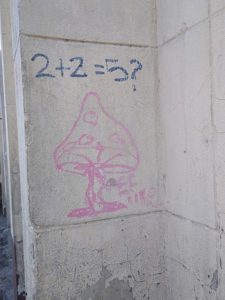2 + 2 = 5 Personality Type
Mathematically incorrect phrase used in literature
The mathematically incorrect phrase "two plus two equals five" (2 + 2 = 5) is best known in English for its use in the 1949 dystopian novel Nineteen Eighty-Four by George Orwell, as a possible statement of Ingsoc (English Socialism) philosophy, like the dogma "War is Peace", which the Party expects the citizens of Oceania to believe is true. In writing his secret diary in the year 1984, the protagonist Winston Smith ponders if the Inner Party might declare that "two plus two equals five" is a fact. Smith further ponders whether or not belief in such a consensus reality makes the lie true.About the falsity of "two plus two equals five", in Room 101, the interrogator O'Brien tells the thought criminal Smith that control over physical reality is unimportant to the Party, provided the citizens of Oceania subordinate their real-world perceptions to the political will of the Party; and that, by way of doublethink: "Sometimes, Winston. [Sometimes it is four fingers.] Sometimes they are five. Sometimes they are three. Sometimes they are all of them at once".As a theme and as a subject in the arts, the anti-intellectual slogan 2 + 2 = 5 pre-dates Orwell and has produced literature, such as Deux et deux font cinq (Two and Two Make Five), written in 1895 by Alphonse Allais, which is a collection of absurdist short stories; and the 1920 imagist art manifesto 2 × 2 = 5 by the poet Vadim Shershenevich, in the 20th century.

